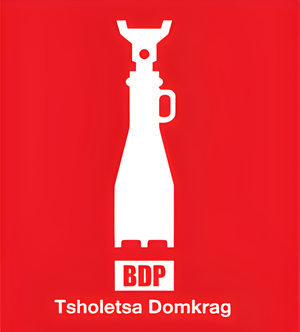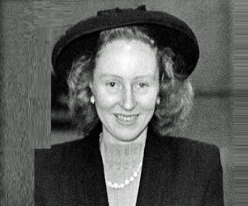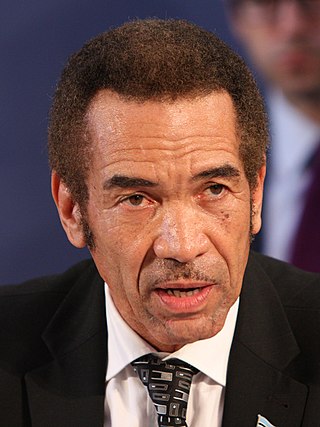 |
|---|
| Constitution |
General elections were held in the Bechuanaland Protectorate in 1961.
 |
|---|
| Constitution |
General elections were held in the Bechuanaland Protectorate in 1961.
A new constitution had been enacted in December 1960, which created both a Legislative Council and an advisory African Council. [1] The Legislative Council had just over 30 members; 10 colonial officials, 10 blacks, 10 whites, one Asian and some co-opted members. [1] The 10 black members were elected by the African Council, whilst the 10 whites and the Asian member were all directly elected. [1]
The African Council consisted of the eight heads of the Tswana chiefdoms and some elected members. [1]
Seretse Khama received the most votes in the election for the black representatives. [2] The Council was inaugurated in June. [2]
The Batswana, a term also used to denote all citizens of Botswana, refers to the country's major ethnic group. Prior to European contact, the Batswana lived as herders and farmers under tribal rule.

Botswana is a parliamentary republic in which the President of Botswana is both head of state and head of government. The nation's politics are based heavily on British parliamentary politics and on traditional Batswana chiefdom. The legislature is made up of the unicameral National Assembly and the advisory body of tribal chiefs, the Ntlo ya Dikgosi. The National Assembly chooses the president, but once in office the president has significant authority over the legislature with only limited separation of powers. The Botswana Democratic Party (BDP) rules as a dominant party; while elections are considered free and fair by observers, the BDP has controlled the National Assembly since independence. Political opposition often exists between factions in the BDP rather than through separate parties, though several opposition parties exist and regularly hold a small number of seats in the National Assembly.

Khama III, referred to by missionaries as Khama the Good also called Khama the Great, was the Kgosi of the Bangwato people.

The Parliament of the Republic of South Africa is South Africa's legislature; under the present Constitution of South Africa, the bicameral Parliament comprises a National Assembly and a National Council of Provinces. The current twenty-seventh Parliament was first convened on 22 May 2019.

The president of the Republic of Botswana is the head of state and the head of government of Botswana, as well as the commander-in-chief of the armed forces, according to the Constitution of Botswana.

Festus Gontebanye Mogae is a Botswana politician and economist who served as the third President of Botswana from 1998 to 2008. He succeeded Quett Masire as President in 1998 and was re-elected in October 2004; after ten years in office. He stepped down in 2008 and was succeeded by Lieutenant General Seretse Khama Ian Khama.

The Botswana Democratic Party is the governing party in Botswana. Its chairman is the Vice-President of Botswana, Slumber Tsogwane, and its symbol is a lift jack. The party has ruled Botswana continuously since gaining independence from the United Kingdom in 1966. The BDP is sometimes classified as a paternalistic conservative party and is also a consultative member of the Socialist International since 2014, which is a group including many worldwide social-democratic parties.

Sir Seretse Goitsebeng Maphiri Khama, GCB, KBE was a Botswana politician who served as the first President of Botswana, a post he held from 1966 to his death in 1980.

The Bechuanaland Protectorate was a protectorate established on 31 March 1885 in Southern Africa by the United Kingdom. It became the Republic of Botswana on 30 September 1966.
Elections in South Africa are held for the National Assembly, provincial legislatures and municipal councils. Elections follow a five-year cycle, with national and provincial elections held simultaneously and municipal elections held two years later. The electoral system is based on party-list proportional representation, which means that parties are represented in proportion to their electoral support. For municipal councils there is a mixed-member system in which wards elect individual councillors alongside those named from party lists.

Ruth Williams Khama, Lady Khama was the wife of Botswana's first president Sir Seretse Khama, the Paramount Chief of its Bamangwato tribe. She served as the inaugural First Lady of Botswana from 1966 to 1980.

The National Assembly is the sole legislative body of Botswana's unicameral Parliament, of which consists of the President and the National Assembly. The House passes laws, provides ministers to form Cabinet, and supervises the work of government. It is also responsible for adopting the country's budgets. It is advised by the Ntlo ya Dikgosi, a council of tribal chiefs which is not a house of Parliament.

Elections in Southern Rhodesia were used from 1899 to 1923 to elect part of the Legislative Council and from 1924 to elect the whole of the Legislative Assembly which governed the colony. Since the granting of self-government in 1923, Southern Rhodesia used the Westminster parliamentary system as its basis of government. The Political party that had most of the seats in the Legislative Assembly became the government. The person in charge of this bloc was the Premier, later renamed Prime Minister, who then chose his cabinet from his elected colleagues.

Rhodesia had limited democracy in the sense that it had the Westminster parliamentary system with multiple political parties contesting the seats in parliament, but as the voting was dominated by the White settler minority, and Black Africans only had a minority level of representation at that time, it was regarded internationally as a racist country.
Moutlakgola Palgrave Kediretswe Nwako was a former politician and diplomat in Botswana. Nwako served as the first foreign minister from 1966-1969. He was Speaker of the National Assembly of Botswana from 1989 to 1999.

Tshekedi Khama was the regent-king of the Bamangwato tribe in 1926 after the death of Sekgoma II.

Seretse Khama Ian Khama is a Botswana politician and former military officer who was the fourth President of the Republic of Botswana from 1 April 2008 to 1 April 2018. After serving as Commander of the Botswana Defence Force, he entered politics and was Vice-President of Botswana from 1998 to 2008, then succeeded Festus Mogae as President on 1 April 2008. He won a full term in the 2009 election and was re-elected in October 2014.

A United Kingdom is a 2016 biographical romantic drama film directed by Amma Asante and written by Guy Hibbert, based on the true-life romance of Seretse Khama, heir to the throne of the Bangwato Tribe in Serowe – one of many tribes found in then Bechuanaland Protectorate – with his wife Ruth Williams Khama. David Oyelowo and Rosamund Pike portray Seretse and Ruth, respectively.
Sir Russell England was a British-born civil servant, farmer and politician in the Bechuanaland Protectorate. A leader of the European community, he served as a member of the Legislative Council of the Bechuanaland Protectorate from 1961 to 1965.